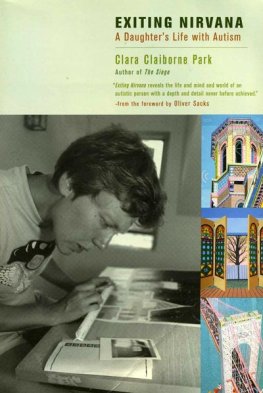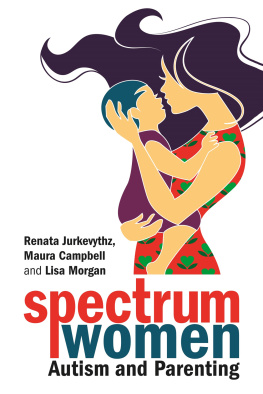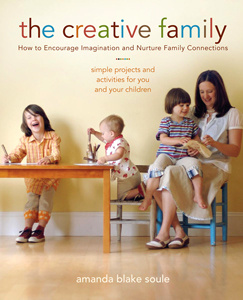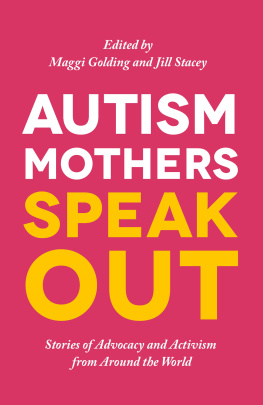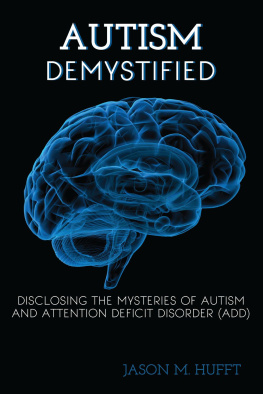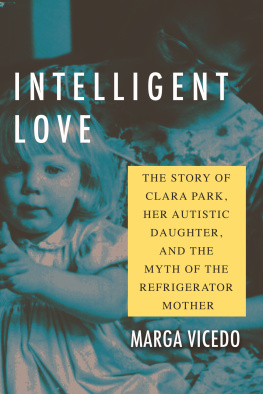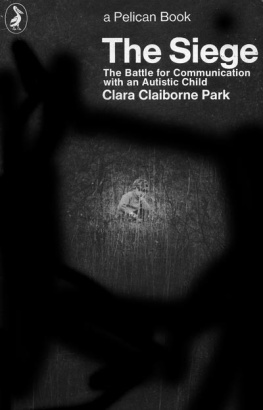Clara Park - Exiting Nirvana
Here you can read online Clara Park - Exiting Nirvana full text of the book (entire story) in english for free. Download pdf and epub, get meaning, cover and reviews about this ebook. genre: Science. Description of the work, (preface) as well as reviews are available. Best literature library LitArk.com created for fans of good reading and offers a wide selection of genres:
Romance novel
Science fiction
Adventure
Detective
Science
History
Home and family
Prose
Art
Politics
Computer
Non-fiction
Religion
Business
Children
Humor
Choose a favorite category and find really read worthwhile books. Enjoy immersion in the world of imagination, feel the emotions of the characters or learn something new for yourself, make an fascinating discovery.
- Book:Exiting Nirvana
- Author:
- Genre:
- ISBN:0-316-69117-8
- Rating:5 / 5
- Favourites:Add to favourites
- Your mark:
- 100
- 1
- 2
- 3
- 4
- 5
Exiting Nirvana: summary, description and annotation
We offer to read an annotation, description, summary or preface (depends on what the author of the book "Exiting Nirvana" wrote himself). If you haven't found the necessary information about the book — write in the comments, we will try to find it.
Exiting Nirvana — read online for free the complete book (whole text) full work
Below is the text of the book, divided by pages. System saving the place of the last page read, allows you to conveniently read the book "Exiting Nirvana" online for free, without having to search again every time where you left off. Put a bookmark, and you can go to the page where you finished reading at any time.
Font size:
Interval:
Bookmark:
Clara Claiborne Park
Exiting Nirvana
A Daughters Life with Autism
Praise for Clara Claiborne Parks Exiting Nirvana. A Daughters Life with Autism
To Jessy,
who once couldn't talk and has spoken so much of this
And to the memory of Ernest C. Pascucci
An eloquent memoir. A loving and lovely book. Parks analysis of Jessys seemingly impenetrable systems is fascinating.
Kevin Riordan, New jersey Courier PostAs much as Exiting Nirvana succeeds in bringing us into the world of autism, perhaps its greater accomplishment is in making us reconsider whatever we thought we knew about what it means to be human in the first place.
David Royko, Chicago TribuneThis book will help both parents and professionals to have a greater understanding of the mind of a person with autism.
Temple Grandin, Ph.D., author of Thinking in Pictures and Other Reports from My Life with AutismA fascinating journey into the autistic mind The anecdotes are compelling, the turns of phrase quite elegant.
Sara Solovitch, San Jose Mercury NewsImmensely readable. A frank, honest telling of how a mother refused to surrender A unique and invaluable case study of the nature of autism.
Richard Nunley, Bersshire EagleAn extraordinarily well-written, moving account of a mothers struggle not only to bring her daughter into the world but also to teach her how to have an extraordinary life The readership of this book is virtually the universe of readers. Anyone interested in child psychiatry should grab this book immediately. Any parent of a special-needs child of any kind will glean much from this book. Anyone interested in existential questions of being can learn from Clara and Jessys journey together. I would make this book required reading in the curriculum of every discipline in the mental health field.
Jeffrey L. Geller, M.D., M.P.H., Psychiatric Services: A Journal of the American Psychiatric AssociationI adore Clara Park and often reread The Siege to maintain my professional focus in times of overwhelming doubt about how to help children and their families Now she touches my mind, heart, and soul again through her poetic voice in Exiting Nirvana There are insights into autism that can only be gained through the time-honored words of a mothers love.
Kathleen Quill, Ed.D., Director, Autism Institute, and author of Teaching Children with AutismA masterpiece. Clara Parks earlier book The Siege was also a masterpiece, but the two masterpieces are quite different. The first was about childhood. The second about maturity. Now we have prose instead of lyrics, serenity instead of passion. Clara has navigated through the storms and come safe to shore. Her daughter Jessy has grown slowly into self-awareness, and Claras work is done.
Freeman Dyson, the Institute for Advanced Study, Princeton, and author of Origins of LifeA beautifully written portrait of a little understood illness.. Park has told Jessys story with clear objectivity but also with a mothers warmth, sharing the bewilderment, frustrations, and triumphs of life with an autistic child. A keen observer of detail, she has patiently unraveled many of the mysteries of Jessys behavior, both for herself and the reader. Though this is a book about Jessy, its also indirectly about one of Jessys most fortunate accidents of fate her remarkable mother.
Donna Marchetti, Cleveland Plain DealerForeword
In 1967 a remarkable book was published The Siege, by Clara Claiborne Park, an account of her daughters first eight years. It was remarkable on several counts: it was the first inside (as opposed to clinical) account of an autistic childs development and life; and it was written with an intelligence, a clear-sightedness, an insight, and a love that brought out to the full the absolute strangeness, the otherness, of the autistic mind. It also brought out how much an empathetic understanding could help to lay siege to autisms seemingly impregnable isolation.
Jessy Park Elly, as she was called in The Siege is now past forty, and Clara Park has now given us a sequel that is, to my mind, more remarkable still. The Siege could only relate the beginnings of a life, whereas Exiting Nirvana gives us a story forty years long, the whole of Jessys unfolding from the almost mute eight-year-old she was in 1967 to the richly gifted, though still clearly autistic, human being she is today.
Over the years the Parks have studied as well as loved Jessy. They have kept detailed records of every stage of her development the development of her language, her emotions, her interests and moods; of her capacities (or incapacities) for understanding other people, the social world; of her capacities for logical and systematic thought; and, not least, of her varied and singular (and sometimes hugely complex) obsessions and systems. There is more data on Jessy, I suspect, than on any other autistic human being who has ever lived. And from this richness, Clara Park a superb observer no less than a devoted parent has distilled a lucid and beautifully wrought narrative, full not only of her own deep observations and thoughts, but of poignant and funny anecdotes of every kind (A book should consist of examples wrote Wittgenstein), and the strange, mad poetry of Jessys own words. It reveals the life and mind and world of an autistic person with a depth and detail never before achieved.
It shows, too, how at least some of what might be called the defects or strangenesses of autism can also become singular strengths. Jessy is incapable of lying, or of detecting lies; the concept of deceit is unavailable to her. She herself is such an innocent that she cannot comprehend the concept of innocence. She is extremely literal-minded. She was wholly incapable at first though is now capable to a small degree of putting herself in others shoes, of sensing their positions or perspectives, for it seems to be of the essence with Jessy, as with all autistic people, that she is mind-blind, or lacking in so-called theory of mind.
Jessy has been subject, from an early age, to sudden enthusiasms (her word) or obsessions (the medical word, which she has happily embraced), going from numbers and colors and unusual sounds and words to radio dials and heaters, to certain roads and houses, to atmospheric anomalies and the night sky. These obsessions, elaborated by an incessantly active and systematizing mind, have led Jessy to construct amazingly intricate systems in which weather, mood, flavors, colors a dozen variables are all interconnected and correlated with one another. (Jessy can instantly learn a word like correlation, because this is already a concept she possesses, when, in contrast, she cannot read the expressions on peoples faces, or the intentions in their voices, cannot comprehend why she cannot instantly evict someone from a restaurant table she considers hers, and is generally blind to all social meanings.) Though idiosyncratic, Jessys systems bring to mind the elaborate, pseudoscientific systems of numerology and astrology.
In the past twenty years, Jessys obsessions have been transformed, or transmuted, into paintings paintings, at first, of radio dials and heaters (very fresh, brilliantly colored, a sort of Pop Art), and now exquisite paintings of houses and churches, in which an uncanny accuracy of line is combined with colors of surreal brilliance. Night scenes are her favorites, in which buildings stand out incandescently against a dark sky cobalt, or ultra- marine, or (her favorite) purplish black and in which every major star is portrayed in its exact position and magnitude.
Exiting Nirvana is never sentimental, but it is often lyrical, and even allegorical in the universality of its themes. All of us, perhaps, have to move from some primal Eden of self-sufficiency, self-absorption, changelessness, timelessness, into the vicissitudes and frustrations and unpredictabilities of the world, into a life that may be full of growth and adventure, but that threatens continual contingency and risk. It may be this is certainly a central theme of the book that this sort of Nirvana can achieve in the autistic an overwhelming, engulfing, annihilating intensity, shutting out the world, in effect, by a timeless absorption in monotonous and repeated activities. Clara Park, in some of the most memorable passages of The Siege, described just this with the eighteen-month-old Jessy; and Temple Grandin (who in referring to her own autism once called herself an anthropologist on Mars) tells us how she too as a child would sit on the beach for hours dribbling sand through my fingers and fashioning miniature mountains, blind to the human beings, the human activities and interactions, all about her. We have all, perhaps, dribbled sand in this way, but for the autistic there is a very real danger that such dribbling will engross an entire lifetime. It was this sort of enraptured, timeless, self-stimulating nothingness that Jessys parents had to put under siege in the first place. But then the siege became a journey into the possibilities of coexisting in our world, partly by understanding it (which is still possible for Jessy only to a very limited extent), more by learning its (to her unintelligible) rules and customs and values by rote, while at the same time keeping, even strengthening, her own autistic singularity and identity that immediacy and purity and simplicity of mind which lies at the core of her character and art.
Font size:
Interval:
Bookmark:
Similar books «Exiting Nirvana»
Look at similar books to Exiting Nirvana. We have selected literature similar in name and meaning in the hope of providing readers with more options to find new, interesting, not yet read works.
Discussion, reviews of the book Exiting Nirvana and just readers' own opinions. Leave your comments, write what you think about the work, its meaning or the main characters. Specify what exactly you liked and what you didn't like, and why you think so.

